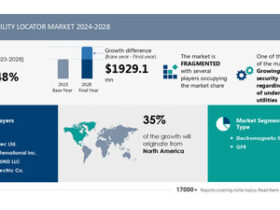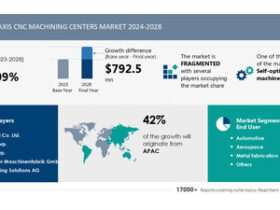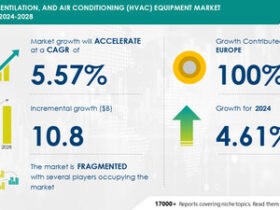WASHINGTON , Oct. 21, 2024 /PRNewswire/ — Mission-based lenders are increasingly using electronic bank account data and technology platforms to expand credit access to underserved entrepreneurs, according to a new FinRegLab working paper that details both current practices and future challenges as lenders work to scale their lending programs.
Transforming Small Business Credit: Technology and Data Adoption in Mission-Based Lending focuses on mission-based lenders such as community development financial institutions (CDFIs) and minority depository institutions (MDIs), which have traditionally used community-based approaches to work with entrepreneurs who struggle to get loans from larger traditional lenders. Despite historical resource limitations, a growing number of these lenders are adopting data and technology innovations to reach more businesses.
The paper finds that mission-based lenders are using electronic feeds of bank account data and lending platforms to reduce paperwork burdens and cut processing times from months to days, helping to provide more entrepreneurs with alternatives to high-speed, high-cost online credit products that can trap small businesses in debt. As lenders gain experience in this space, they are considering further underwriting and technology changes to deepen credit access and substantially expand their programs.
“Mission-based lenders punched significantly above their weight in serving minority business enterprises and smaller and younger businesses during the pandemic,” said FinRegLab CEO Melissa Koide . “They are increasingly using data and technology to build on that momentum and help to sustain and expand the explosion in small business formation over the past five years.”
Small businesses generate two-thirds of the nation’s net new jobs and play a critical role in household wealth formation, yet often struggle to access credit to cover liquidity needs and expand their operations. Access to credit has been even more challenging for entrepreneurs of color and women, who are playing a critical role in driving small business formation rates to the highest levels seen in decades.
Mission-based lenders are increasingly prioritizing lending to smaller and younger businesses to address racial wealth gaps and protect their communities against the impacts of extractive lenders. The FinRegLab working paper focuses on the role of data and technology innovations in these efforts, drawing on dozens of stakeholder interviews and the experiences of pilot programs by five CDFIs and MDIs – Allies for Community Business, Ascendus, LiftFund, Ponce Bank, and Texas National Bank.
The paper provides a practical snapshot of how lenders manage data and technology adoption today and a broader analysis of issues that will shape their ability to serve substantially larger numbers of entrepreneurs in the future. Key findings on the state of implementation include:
Initial inclusion and efficiency benefits: Mission-based lenders are seeing significant benefits from using electronic bank account data in lieu of formal financial statements and tax returns. Such documentation can be burdensome and time-consuming for applicants and loan officers to generate, collect, and analyze, and is often outdated or incomplete. Expansion potential: Lenders are moving at different paces to increase customer acceptance of electronic bank account data, analyze which data elements are most predictive, and implement additional lending processes and platform improvements. Over time, many expect to adjust their underwriting models further and expand the scope of their programs, but the extent to which they maintain manual backup processes presents potential tradeoffs with regard to inclusion and efficiency. Improved technology options: The range of technology vendors willing to work with mission-based lenders has increased substantially over the last decade. However, lenders face persistent staffing and capacity challenges in selecting and managing technology platforms and vendors. Effective leadership and change management strategies are critical to success. Key findings for broader efforts to scale the sector’s impact on the small business lending market include:
Turbo-charging technology adoption: Group initiatives facilitated by mission-based intermediaries are helping smaller lenders navigate technology adoption more efficiently but underscore the difficulty of identifying a single, broad, sector-wide solution. Dedicated resources for capacity building are critical. Innovations in marketing: Improving digital marketing, working with small business loan marketplaces, and expanding referral networks hold promise for reaching more applicants, though mission-based lenders are encountering challenges as they pursue such strategies. Liquidity management: Secondary market initiatives focused on helping mission-based lenders recycle their funds more quickly into additional lending are particularly promising for creating sufficient liquidity to expand the scale of their programs. Ecosystem relationships: As their small business lending grows, mission-based lenders are working to translate their “high touch” ethos to “high tech” channels and grappling with potential changes in their relationships with other lenders, funders, and technology partners. An updated version of the paper will be released in early 2025 with additional insights from pilot programs, other current initiatives, and additional stakeholder engagement.
About FinRegLab
FinRegLab is an independent, nonprofit research organization that conducts research and experiments with new technologies and data to drive the financial sector toward a responsible and inclusive marketplace. We also facilitate discourse across the financial ecosystem to inform public policy and market practices.
About the Project
This research initiative is funded by a grant from the U.S. Department of Commerce, Minority Business Development Agency, and support from Visa. Plaid is providing free account connectivity services to the pilot programs to allow loan applicants to authorize their account data to be accessed for underwriting.
The project’s first report, From Crisis to Opportunity: Financing for Underserved Small Businesses since COVID-19 , highlighted expanding small business formation since the pandemic, shifts in credit markets as various types of lenders reacted to the initial shutdown and subsequent economic volatility, and the potential for continuing technology and data improvements to expand credit access among smaller and younger businesses.
For media and other inquiries about this research, email contact@finreglab.org , and sign up for our newsletter to receive updates on this and other research at finreglab.org .
View original content to download multimedia:https://www.prnewswire.com/news-releases/report-mission-based-lenders-use-of-bank-account-data–lending-platforms-expands-lending-to-minority-business-enterprises–other-underserved-entrepreneurs-302281185.html
SOURCE FinRegLab











Leave a Reply